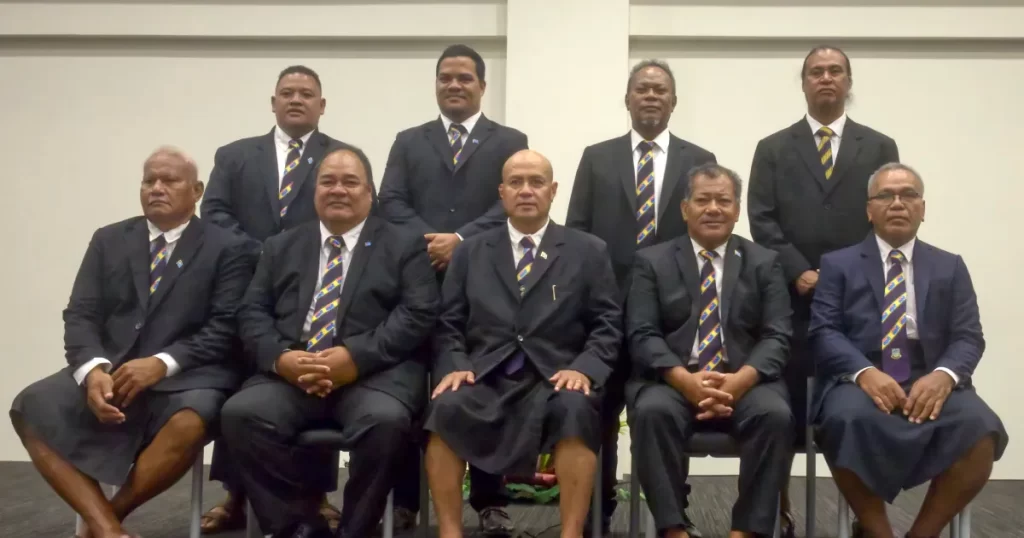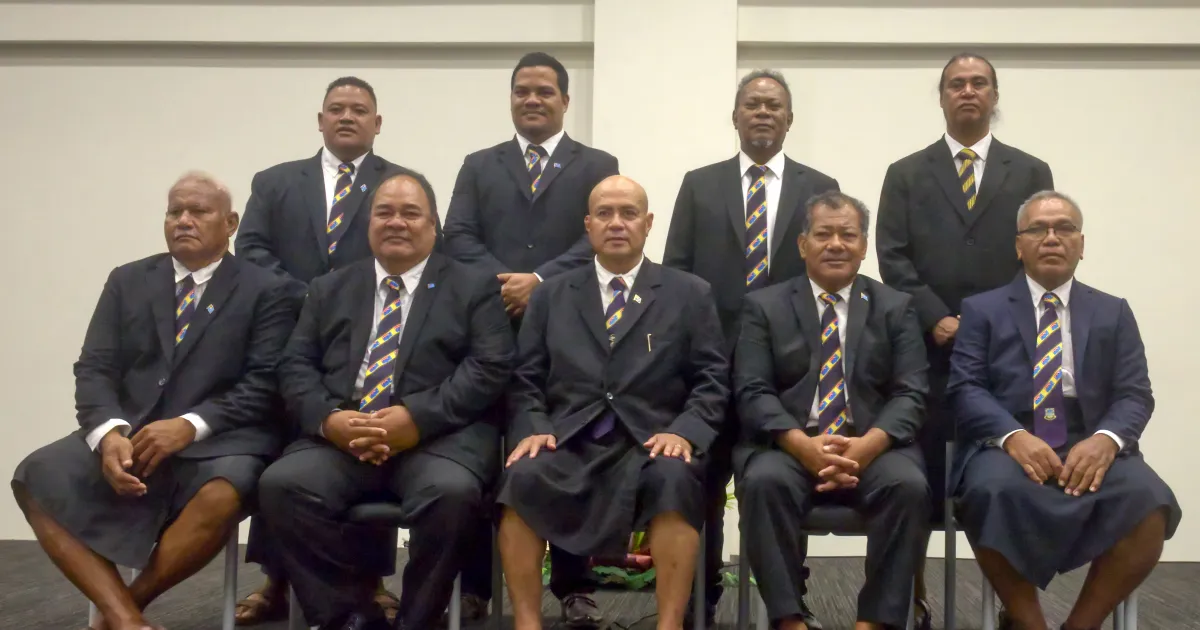
New government pledges to keep up ‘special’ relationship with Taiwan, ending speculation it may switch diplomatic recognition to China.
Tuvalu’s new government has committed to continued diplomatic ties with Taiwan instead of switching to China, and said it plans to revise a defence and migration agreement struck with Australia.
Prime Minister Feleti Teo and his seven cabinet ministers, who won office following a general election last month, made the commitments in a statement of priorities after being sworn in on Wednesday.
“The new government wishes to reaffirm its commitment to the long-term and lasting special relationship between Tuvalu and the Republic of China, Taiwan,” the statement said.
“It intends to reassess options that would strengthen and lift it to a more durable, lasting, and mutually beneficial relationship.”
Tuvalu, a Pacific Islands nation of about 11,200 people, is one of only 12 countries that have official diplomatic ties with Taiwan, a self-governed democracy that China claims as its own territory.
The China-Taiwan issue was heightened during Tuvalu’s election campaign when a senior lawmaker floated the idea that the country’s new government could review its ties with Taipei.
In Beijing on Monday, Chinese Foreign Ministry spokesperson Mao Ning urged Tuvalu to switch diplomatic recognition to China.
“We call on a handful of countries that still keep the so-called relationship with the Taiwan region to stand on the right side of history and make the right decision that truly serves their long-term interest,” she said.
Nauru, Tuvalu’s neighbour, cut ties with Taiwan last month and switched to China, which had promised the country more development help.
Teo’s government, in its statement of priorities, also pledged to revisit a landmark pact signed with Canberra in November that offered Tuvalu citizens a climate refuge in Australia. The treaty is yet to be ratified.
The new government said it supports the “broad principles and objectives” of the bilateral security pact, but acknowledged an “absence of transparency and consultations” behind the treaty.
It said it wants to renegotiate the deal with a focus on “safeguarding the integrity of the sovereignty of Tuvalu”.
Tuvalu’s low-lying atolls make it particularly vulnerable to global warming.
Two of the country’s nine coral islands have already largely disappeared under the waves, and climate scientists fear the entire archipelago will be uninhabitable within the next 80 years.
In the treaty, Australia offered Tuvaluans a lifeline to help residents escape the rising seas and increased storms brought by climate change.
Australia would initially allow up to 280 Tuvaluans to come to Australia each year.
The treaty also commits Australia to help Tuvalu in response to major natural disasters, pandemics and military aggression.
In return, Australia would gain the contentious veto power that is seen as an attempt to prevent a Chinese military foothold in Tuvalu.
A spokesperson for Australia’s Department of Foreign Affairs said Canberra “stands ready to engage with Prime Minister Teo and his government on the priorities they have outlined”.
The United States and Australia, its influential ally in the region, have been rapidly building bridges with Pacific island nations in response to China signing a security pact with the Solomon Islands in 2022 that raised the prospects of a Chinese naval base being established in the South Pacific.


